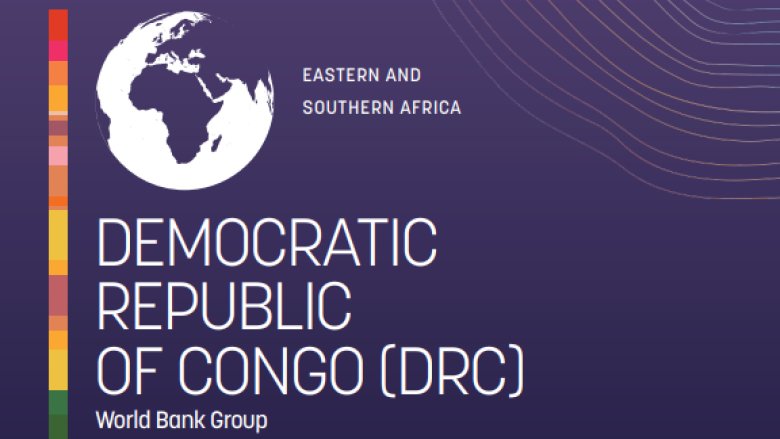KINSHASA, November 2023 - The first edition of the Democratic Republic of Congo (DRC) Country Climate and Development Report underscores the critical need for DRC to undertake structural transformation and economic diversification as essential strategies for poverty reduction and the advancement of inclusive, sustainable development.
This Country Climate and Development Report (CCDR) aims to support DRC's efforts to achieve its development goals by quantifying the impacts of climate change on the economy and highlighting policies and interventions needed to strengthen the country's climate resilience. The CCDR supports the strategic vision of the Government of DRC to reach middle-income country status by 2035, and by 2050, become a diversified inclusive economy spurred by sustainable growth.
DRC suffers from the combined effect of a large vulnerable population, a surge in the frequency of climate extremes, and low provision of services and infrastructure. With an estimated population of 95.3 million people and a poverty rate of 62.3% in 2022, DRC ranks 178 out of 182 on the 2020 Notre Dame Global Adaptation Index. Climate-related shocks, including floods, and droughts, are expected to rise in both frequency and intensity over time, with the poor bearing the brunt of the impacts.
Most poverty drivers in DRC are climate change sensitive. Three acutely sensitive socioeconomic factors drive poverty and social exclusion rates in the DRC: low access to water, electricity, and sanitation; the inadequate quality of housing; and poor transportation connectivity. Climate change could reverse DRC's hard‑won gains in human capital, with a disproportionate impact on the poor, and especially on women and excluded populations.
Under different development scenarios, climate change without adaptation could result in up to a 13% loss in GDP by 2050.
Additional adaptation measures could, by 2050, reduce the impact of climate change on GDP and public investments by about 40% to 7.8% of GDP under the most pessimistic climate scenario. DRC would need to invest an additional 9% of its GDP to offset climate change impacts by 2050.
An ambitious development pathway coupled with adaptation strategies that build greater climate resilience will involve doing entirely different things as well as doing development initiatives differently. New investments need to be climate‑resilient and inclusive, and additional policies and investments will be needed.
The CCDR delineates four critical action areas for the DRC to confront its development challenges amid a changing climate. According to the adaptation actions modeled in the report, the initial public investments required to partially offset climate change risks are estimated at around $10.9 billion by 2050. The specific action areas are as follows:
- Underpin the vision of DRC as a climate "solutions country" through climate smart mining, hydropower development, the preservation of forests, and integrated landscape management.
- Increase agriculture productivity and food security through climate smart agriculture, and support farmer‐led irrigation.
- Develop climate resilient transport and cities, enhance digital access, and improve access to basic services.
- Enhance governance and boost human capital by reducing poverty, increasing social inclusion, and enhancing security.
